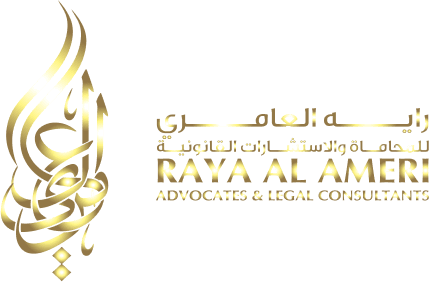Understanding Your Marriage Type Under Sharia Law
Marriage Law in the United Arab Emirates (UAE) holds a significant place in the country’s traditions and laws. It’s guided by Sharia Law, which is the main legal system that recognizes the union between a man and a woman as official and valid.
What Types of Marriage Do You Fall Under?
People who want to get married can choose between two main legal frameworks: marriage under Sharia Law and Civil Law. This thoughtful approach means that in the UAE, everyone can celebrate their love and commitment in a way that aligns with their own values, while also being fully recognized and supported by the law. Nevertheless, in this article, we will shift our focus solely to marriage under Sharia Law in the UAE.
Sharia Law
Marriage law in the UAE are governed by the (Federal Law No. 28 of 2005), which states that marriage is a legal contract that establishes a stable family. The law requires mutual consent and registration in a Sharia court. Islamic marriages in the UAE are performed following Sharia provisions, which are applicable under the following conditions, irrespective of the couple’s nationality:
-
- Both the groom and the bride are Muslims.
-
- The groom is Muslim, and the bride is from ‘Ahl Al-Kitaab,’ typically Christian.
While UAE law allows a Muslim man to marry a non-Muslim woman, a Muslim woman is prohibited from marrying a non-Muslim man unless there is evidence of his conversion to Islam.

Understanding the Legal Essentials for Marriage under Sharia Law:
In the Emirates, the method of contracting marriages varies based on multiple criteria, such as residence, faith, and citizenship. Muslim marriages must be adhered to, ensuring compliance with both “UAE law” and “Sharia law UAE marriage” guidelines. These requirements are designed to uphold the sanctity and legal integrity of matrimonial unions within the country:
-
- In the UAE, Sharia law governs marriage contracts for Muslim citizens and expatriates, allowing them to marry under Islamic principles.
-
- The applicability of Sharia marriage in the UAE is contingent upon both the bride and groom being Muslims.
-
- Should the groom be Muslim and the bride a member of the “Ahl Al Kitaab” (People of the Book), the marriage is still permissible and can be conducted under Sharia law. Registration of the marriage contract in a Sharia court across the UAE is compulsory.
-
- The legal threshold for marriage is set at 18 years. Marriages involving individuals younger than this age must get special approval from a judge to marry.
-
- In instances with a considerable age difference, specifically, if one partner is twice as old as the other, the law—guided by “Sharia law UAE marriage”—requires judicial consent.
-
- A premarital screening certificate is mandatory.
-
- The physical presence of the couple intending to marry is compulsory.
-
- The attendance of the bride’s father or his proxy, along with two male Muslim witnesses, is essential.
-
- Should the bride’s father be deceased, the presence of the closest male guardian, such as an elder brother, becomes necessary.
-
- Women who are divorced or widowed must present evidence of their marital status.
Importance of Premarital Health Screenings in the UAE
As according to the marriage law in UAE, Premarital health screenings are mandatory for couples planning to get married in the UAE, and are facilitated by the Emirates Health Services, the Disease Prevention and Screening Centers in Abu Dhabi, and the Dubai Health Authority.
It’s important to be aware that finding health issues during these screenings might result in the refusal of the marriage application.
Facilitators of Islamic Marriages in the UAE
The responsibility of officiating Islamic marriages in Dubai falls under the purview of the Judicial departments and Sharia courts, alongside the appointed Mazoons, who serve as authorized marriage officers in each emirate. Mazoons, in particular, are responsible for overseeing the marriage ceremonies, managing the contracts, and checking all the documents, ensuring everything is done correctly and respectfully according to Islamic traditions.

Dowry Regulations in Islamic Marriages
Based on Federal Law No. 21 of 1997 in the UAE, dowry regulations in Islamic marriages serve to maintain tradition while guaranteeing economic fairness. The law stipulates that the husband must give an advance dowry, which can be money or property, to the wife at the time of marriage. The value of this dowry cannot exceed AED 20,000. Additionally, the deferred dowry, which is promised to the wife for a later date, is limited to AED 30,000.
There is no minimum value for the dowry, but the maximum limit aims to prevent financial strain on families and ensure social harmony. As the bride’s property, the dowry empowers her with the freedom to manage it as she sees fit, reinforcing her financial independence within the marriage.
Legal Proceedings for Excess Claims:
-
- Courts will not entertain claims exceeding the dowry limits mentioned above. This rule applies to ongoing cases as of the law’s effective date.
Wedding Ceremony Regulations:
-
- The wedding celebration is restricted to one day only.
-
- A maximum of nine camels may be slaughtered for the wedding festivities.
Marriage in Dubai: Requirements, Process, and Fees Explained
General Requirements for Marriage in the UAE
For couples planning to get married in Dubai, there’s a checklist of documents and conditions they’ll need to meet. Here’s what’s necessary:
-
- The bride must give her consent to the marriage.
-
- In Dubai, at least one person involved in the marriage (either the husband, the wife, or the wife’s guardian) must hold a UAE residence visa. In other emirates, both the bride and groom are required to be UAE residents.
-
- Pre-marital Screening
-
- Marriage License Fees
Required Documents for Marriage Registration in Dubai
-
- Valid Emirates ID or passport
-
- Birth certificates
-
- Proof of marital status (single, divorced, widowed)
-
- Parental consent for Muslims under the age of 21
-
- Divorcees are required to provide an official certificate or a divorce decree.
-
- Widows and widowers must provide the death certificate of their deceased spouse.
Document Legalization Process for Use in the UAE
Any certificates, including powers of attorney and other documents from outside the UAE, must be translated into Arabic legally. They require certification from the Ministry of Foreign Affairs in the country of origin and the UAE embassy in that country. After arriving in the UAE, these documents must be ratified by the UAE’s Ministry of Foreign Affairs and the Ministry of Justice to be deemed valid.

Process of Sharia Marriage in UAE
-
- Submitting an E-Application and Payment of Fees:
The first step for couples wishing for marriage under Sharia Law in the UAE is to submit an electronic application. Along with the application, couples are required to pay the associated fees, which can vary depending on the specific services and requirements for their marriage ceremony.
-
- Contacting Accredited Marriage Officers:
After submitting the e-application, couples need to contact accredited Marriage Officers, known as ‘Mazoons’ in the UAE. These officers are authorized by the judicial department to perform marriage ceremonies in accordance with Sharia Law.
-
- Receiving the Approved E-Certificate:
Once the marriage ceremony is conducted and all legal formalities are completed, the couple will receive an approved e-certificate, which is the official document certifying their marriage under Sharia Law in the UAE.
Overview of Legal Fees and Costs for Marriage in Dubai
For couples seeking a Sharia marriage in Dubai, the cost to issue a marriage certificate at Dubai courts ranges from AED 220 to AED 500. This variation depends on the specific process selected and the fee set by the authorized marriage official. It’s important to note that this amount does not cover the payment to the Marriage Official (Mazoon) who conducts the ceremony, which is an additional cost within the overall expense for the marriage contract.
Venue for Your Marriage Ceremony in Dubai
Couples have several reputable venues where they can conduct their marriage ceremony; these venues are recognized government service providing centers, specifically designed to facilitate the solemnization of marriages under the legal framework of the country. Here are the key locations where marriage ceremonies can be conducted:
-
- Dubai Courts Center – Al Yalayis
-
- Dubai Courts Center – Wafi Mall
-
- Dubai Courts Center – Al Barsha Traffic Building
Conclusion
The Emirates is updating its family laws to make life easier for everyone living there, showing a real commitment to welcoming different cultures, religions, and backgrounds. When it comes to getting married in Dubai, there’s a great mix of tradition and clear legal rules. This ensures that whether you’re from the UAE or abroad, your marriage will be recognized and respected, combining a celebration of love with peace of mind that everything is legally sorted.
For tailored legal assistance and support, please reach out to us at +971 4 578 6050. Learn why Raya Al Ameri Advocates & Legal Consultants is your dependable ally for legal affairs in the UAE. Allow us to assist you with your comprehensive legal needs.

